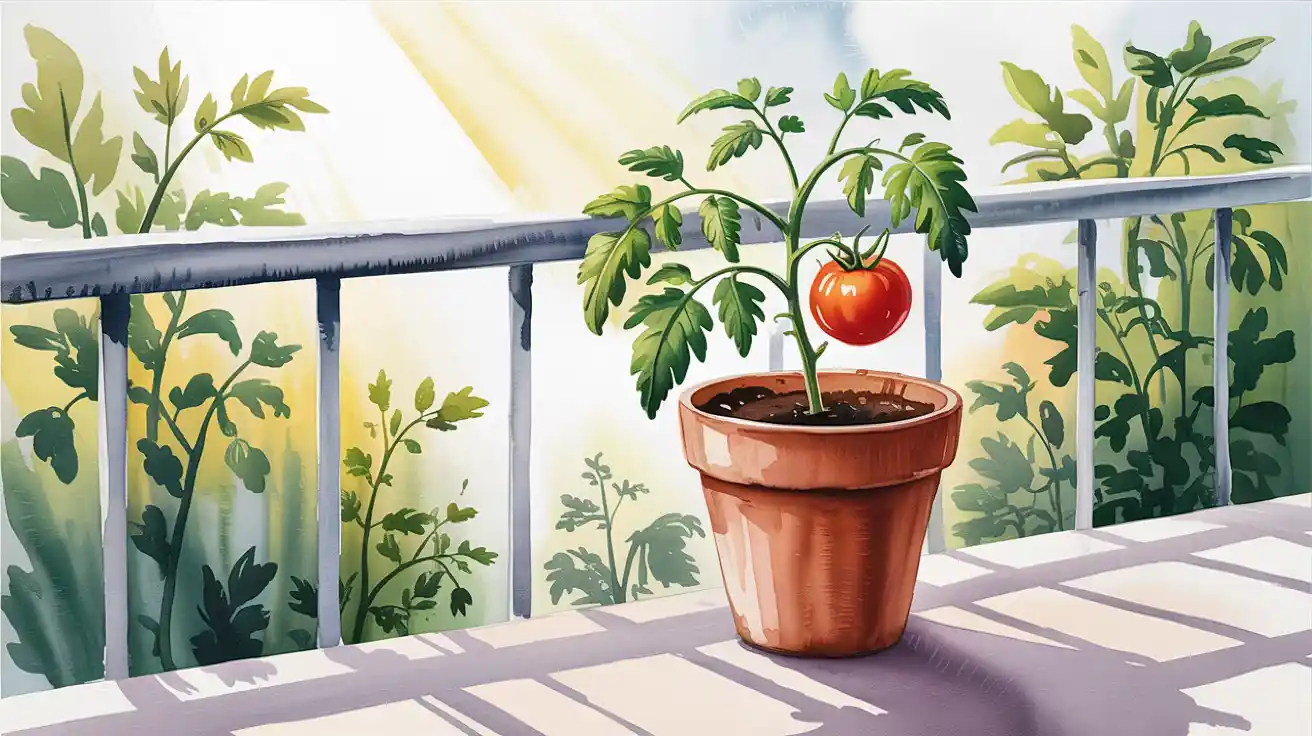Finding Joy in Small Things: How a Single Tomato Saved My Life

For most of my adult life, I was a hunter of big game.
I chased promotions, bylines, and the kind of achievements that were impressive when mentioned at a dinner party.
My definition of success was tied to grand, public gestures. It was a loud, exhausting, and ultimately hollow pursuit.
I know this because the most profound sense of victory I have ever felt came not from a signed contract or a round of applause, but from a single, perfect tomato that I grew on my apartment balcony.
It was a completely unremarkable tomato. It was about the size of a golf ball, a cheerful, unapologetic red. I had watched it for weeks, from a tiny green nub to a ripe, sun-warmed globe.
When I finally picked it, I didn’t just feel happy. I felt a sense of profound, tear-inducing pride that was so intense it almost buckled my knees. And I had to ask myself: why did this tiny fruit feel more significant than all the “big” things I had ever achieved?
The answer, I’ve come to realize, is that I had finally stumbled upon the quiet, revolutionary act of finding joy in small accomplishments.
The Tyranny of “Go Big or Go Home”
We live in a culture that worships the giant leap. We’re told to dream big, to hustle harder, to aim for the moon.
The subtext is that small, quiet, and incremental is not enough. This mindset turns life into a series of pass-or-fail exams. You either launch a successful company or you’re a failure. You either run the marathon, or you don’t even try.
There is no room for the messy, beautiful, and deeply human process of simply getting a little bit better each day.
My old life was built on this foundation. It was a life designed to look good from the outside, a collection of achievements that I thought would add up to happiness.
But they never did.
Each victory was a fleeting sugar high, followed by the immediate, anxious question: “What’s next?” This is the fundamental challenge of how to rebuild your life after failure, especially when the failure is a slow, internal one.
You have to unlearn the very definition of success that led you astray.
A Balcony Farmer’s Almanac of Failure
My journey to growing that one perfect tomato began, as most worthwhile journeys do, with a series of failures.
After the Great Bookshelf Disaster of last year, I decided to channel my newfound desire for tangible creation into something living. I bought a pot, a bag of soil, and a packet of tomato seeds.
My first crop of seedlings died within a week. I had drowned them with love and water.
My second attempt was eaten by aphids that appeared as if by magic. The third attempt produced a spindly, sad-looking plant that yielded three tiny, green tomatoes that stubbornly refused to ripen before the first frost.
With each failure, I learned something. I learned about drainage, about sunlight, about the brutal realities of the aphid life cycle. It was a slow, humbling education.
There were no shortcuts. There was no way to “hack” the growth of a plant. There was only the quiet, daily practice of showing up. Of checking the soil, of watering, of waiting.
This process of celebrating small wins, like the appearance of the first tiny yellow flower, became my new metric for success.
The Quiet Gospel of the Tangible
When I finally held that one, perfect, ripe tomato in my hand, I understood what had been missing from my previous life.
My old achievements were abstract: numbers on a spreadsheet, polite emails of congratulations, a new title on a business card. They were pixels on a screen. But this tomato was real. It was solid. It had weight. I had coaxed it into existence with my own two hands.
This is the power of finding purpose in simple things.
In a world that is increasingly digital and disconnected, the tangible has a unique and potent magic. To create something real, something you can touch and taste, is to ground yourself in the world in a way that no amount of virtual success can replicate.
This small, private victory was a profound lesson in the art of unbecoming.
It was about shedding the need for external validation. No one else needed to see my tomato for it to be a success. There was no audience, no like button, no congratulatory comments.
The joy was entirely my own. It was a quiet, self-sufficient harvest, and it was more nourishing than any public acclaim I had ever received.
This feeling, this small, quiet, perfect victory, is the heart of what I wanted to explore in my novel, Her Last Filter. It’s the journey my main character, Everly, takes as she walks away from a life of massive, public success to discover the profound, life-altering joy of a small, private harvest.
She learns that the most meaningful accomplishments are often the ones that no one else ever needs to see.
I sliced that tomato, sprinkled it with a little salt, and ate it while standing on my balcony. It was, without exaggeration, the best tomato I have ever tasted.
It tasted like sunshine, patience, and the quiet, hopeful promise that even after a series of failures, it is always possible to grow something beautiful.
What has been your “single tomato” moment? I’d love to hear about a small, quiet accomplishment that brought you a surprising amount of joy.


